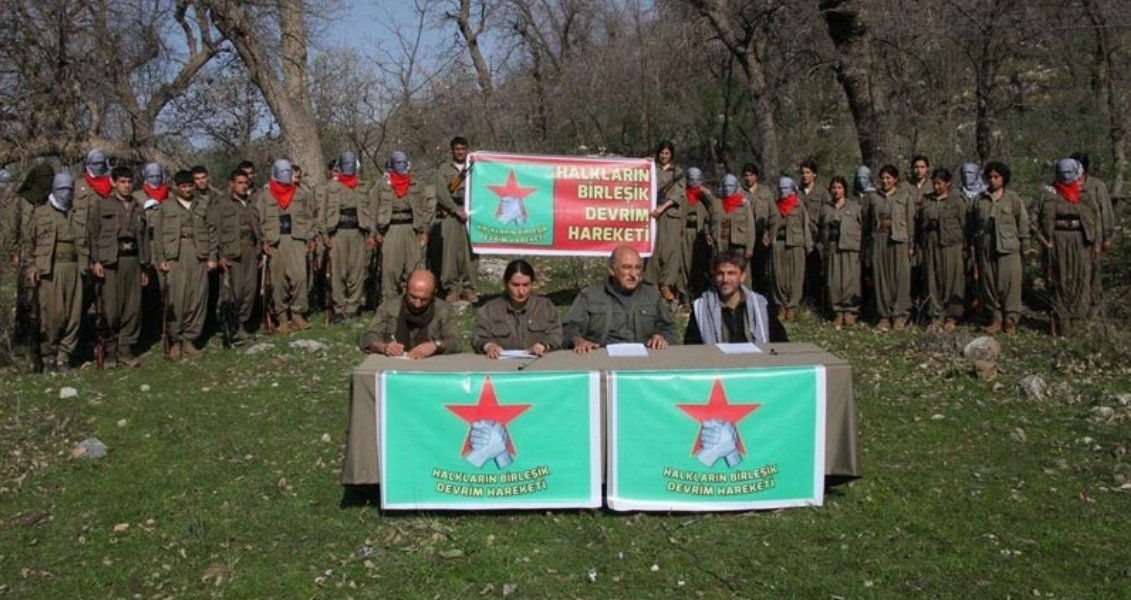Are the PKK and Its Far-Left Ally MLKP Heading Toward a Split?

A rare public disagreement has surfaced between the Kurdistan Workers’ Party (PKK) and its longtime Marxist ally, the Marxist-Leninist Communist Party (MLKP), following the PKK’s historic decision to dissolve itself and transition from armed guerrilla struggle to nonviolent political engagement. The divergence marks a potential rupture within one of the Middle East’s most enduring revolutionary alliances.
The MLKP, which has fought alongside PKK guerrillas in Turkey and Iraq and maintains fighters within the Kurdish-led Syrian Democratic Forces (SDF) in Rojava, issued a sharply worded statement rejecting the PKK’s new strategy. The group denounced the move as a “reformist and liquidationist” turn, warning that surrendering arms without securing fundamental democratic rights—such as mother-tongue education, autonomy, and safe return of exiled militants—amounts to accepting “an unjust and undemocratic peace.”
“The revolutionary task today is to stop the march toward colonialist peace,” the MLKP said, directly challenging the strategic orientation adopted at the PKK’s 12th Congress. It also warned that disarmament under current Turkish conditions would leave oppressed groups defenseless: “As long as workers, women, and the poor are left unarmed—facing tanks and barrels with bare fists—revolution is impossible.”
The PKK, in turn, responded without naming the MLKP directly but left little doubt about the target of its rebuke. Senior PKK official Duran Kalkan addressed the backlash in a televised interview, accusing critics of clinging to abstract notions of permanent war at the expense of the Kurdish people’s well-being.
“Do they want Kurds to live forever consumed by war?” Kalkan asked rhetorically. “If they’re so eager for conflict, let them fight it themselves. This organization has conducted armed struggle for 48 years and continuous guerrilla warfare for 41 years. Everyone should examine their own reality before making such statements.”
Kalkan, who is ethnically Turkish, framed the PKK’s shift not as a retreat, but as an evolution of revolutionary practice. “The level of violence doesn’t determine whether a method of struggle is revolutionary,” he argued. “Those who say ‘armed violence equals revolution, while non-violent methods equal reformism’ are mistaken. The deeper the ideological opposition, the more revolutionary a struggle becomes.”
The core of the disagreement appears to center not only on strategy but on competing theories of revolution under contemporary conditions. While the PKK frames its transformation as adapting to new political realities and international dynamics, the MLKP views it as an abandonment of core revolutionary principles and a concession to Turkish state narratives.
Crucially, the MLKP’s critique suggests that the PKK’s decision could fragment the broader coalition it helped build. In 2016, the PKK and MLKP co-founded the Peoples’ United Revolutionary Movement (HBDH), an umbrella alliance of far-left armed organizations committed to anti-fascist struggle across Turkey. The MLKP’s statement reflects deep concern that the PKK’s departure from armed resistance will weaken this alliance and embolden the Turkish state.
Moreover, the MLKP’s tone reveals a deeper anxiety: that the PKK’s infrastructure—territorial presence, logistical networks, and symbolic leadership—has served as a vital backbone for smaller revolutionary factions like the MLKP. A PKK retreat from militancy could leave its allies isolated and vulnerable.
Still, the MLKP stopped short of declaring a formal break. Instead, it emphasized that it “maintains its alliance perspective” and expressed cautious optimism that democratic forces might still unify in other forms of resistance. Yet its final rallying cry—calling on workers, women, and the oppressed in Kurdistan and Turkey to fight “with all legal, illegal, peaceful, mass-based, armed and unarmed means”—stands in stark contrast to the PKK’s new political posture.
The episode marks the most serious ideological rift between the PKK and MLKP to date. Whether this amounts to a full split or an uneasy recalibration of roles will likely depend on how the PKK’s post-guerrilla strategy unfolds—and whether it can achieve meaningful political gains without the gun.









